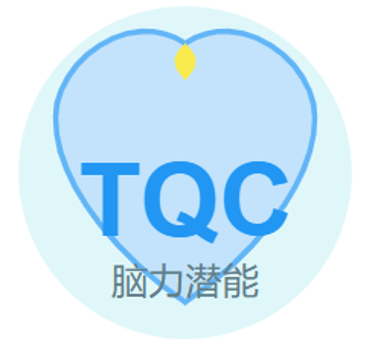特别的限时优惠。立即行动!
Special Limited-Time Offer. Act Now!
Your TQC Genius Guide to Managing Teen Anxiety
Teen anxiety is real. Learn how TQC Genius Brain Analysis can reveal your stress triggers and equip you with personalized strategies to manage overwhelm and find calm.
Nicole
10/8/20253 min read


Exams, social dynamics, college applications, family expectations, future worries – being a teenager today comes with a unique set of pressures. It's no wonder that many teens feel overwhelmed, anxious, or just plain stressed out. That knot in your stomach, the racing thoughts at night, the feeling of being constantly on edge – these are real experiences that can impact your academic performance, relationships, and overall well-being.
While everyone experiences stress, how we react to it and what triggers it can be deeply personal. What helps one friend relax might make another more anxious. This is where TQC Genius Brain Analysis can be incredibly insightful. By providing a personalized map of your brain's processing and emotional responses, TQC helps you understand your unique stress profile and develop tailored strategies for finding calm and managing anxiety.
Your Brain's Stress Response: It's Personal
Your brain's intricate wiring plays a significant role in how you perceive and respond to stress. TQC Analysis helps pinpoint specific areas that influence your anxiety levels and coping mechanisms:
Sensory Processing Sensitivity:
TQC Insight: Some brains are naturally more sensitive to external stimuli (noise, bright lights, crowds, strong smells). What might be background noise to one person could be overwhelming to another.
Impact: If your TQC profile shows high sensory sensitivity, busy classrooms, loud social events, or even certain textures in your clothing could contribute to your stress and anxiety.
Emotional Regulation & Reactivity:
TQC Insight: Your limbic system (the emotional center) interacts with your prefrontal cortex (the rational center) in unique ways. Some brains are naturally more reactive to perceived threats or negative emotions, making it harder to calm down once stressed.
Impact: You might find yourself easily upset by small setbacks, or struggle to bounce back after an argument with a friend, leading to prolonged feelings of anxiety.
Coping Mechanisms & Resilience:
TQC Insight: TQC can reveal your natural inclinations for dealing with stress – do you tend to internalize, externalize, seek support, or withdraw? It also highlights your natural resilience factors.
Impact: Understanding this helps you identify unhelpful coping habits (like avoidance) and build on your inherent strengths to develop healthier ones.
Cognitive Load & Overthinking:
TQC Insight: Some brains are wired for deep, analytical thought, which can sometimes lead to overthinking, rumination, or catastrophizing – common hallmarks of anxiety. Others might struggle more with cognitive organization under pressure.
Impact: You might find yourself constantly replaying social interactions, worrying excessively about future events, or feeling mentally paralyzed by a large assignment.
Your TQC Genius Guide to Calm
Armed with the insights from your TQC Genius Brain Analysis, you can create a truly personalized toolkit for managing anxiety:
Identify Your Unique Triggers: If sensory overload is a factor, you can consciously seek out quieter spaces or use noise-canceling headphones. If social comparison fuels your anxiety, you can work on focusing on your own path.
Tailor Your De-stressing Techniques: If your brain thrives on physical activity to release tension, prioritize exercise. If quiet reflection helps calm your reactive emotions, integrate mindfulness or journaling.
Communicate Your Needs: Understanding your unique stress points allows you to articulate them to parents, teachers, and friends, fostering a more supportive environment.
Build Your Resilience: TQC can highlight your natural strengths. Are you a problem-solver? Use that to tackle anxiety-inducing situations head-on. Are you highly empathetic? Channel that into helping others, which can be a powerful stress reliever.
Optimize Your Environment: Design your study space and daily routine to minimize known stressors and maximize moments of calm that suit your brain.
Teen anxiety is a challenge, but you don't have to face it alone or with generic advice. Your TQC Genius Brain Analysis offers a profound understanding of your unique mind, empowering you to effectively manage stress, cultivate inner calm, and thrive during these formative years.
TQC 评估
个性化评估助力职业与教育发展
深入了解孩子的天赋优势
助力个性化成长与未来发展
Personalized assessments empower career and educational advancement, providing deep insight into a child's natural talents to foster individualized growth and future development.
地址
Address
订阅我们的电子报
Subscribe To Our Newsletter
© 2025. TQC Genius Brain. All rights reserved.
13a-3a, 3rd Mile Square,
Jalan Klang Lama,
58000 Kuala Lumpur.
重要链接
Important Links
博客 / Blog
隐私政策 / Privacy Policy
服务条款与条件 / Terms & Condition
医疗免责声明 / Medical Disclaimer
